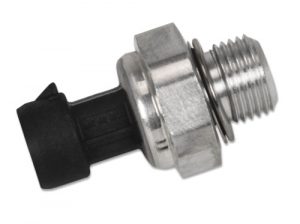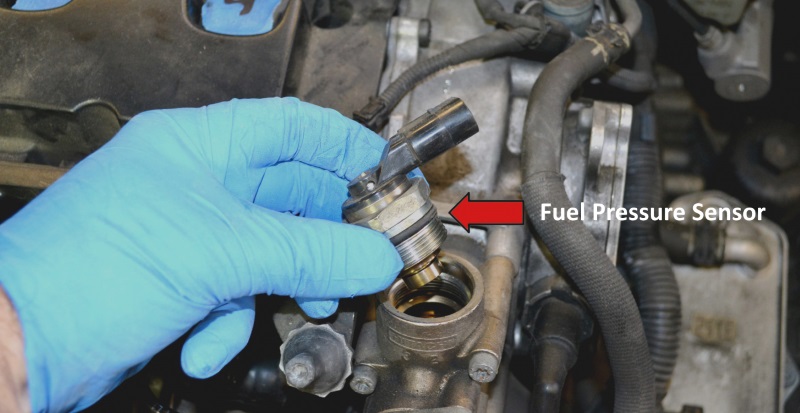What does the engine fuel pressure sensor do?

The fuel pressure sensor is an important part of the fuel system assembly on most diesel vehicles and some petrol vehicles. It is responsible for analysing fuel pressure levels and sending the information to your car’s engine computer.
The car engine Electronic Control Unit (ECU) computer uses the information sent from the fuel pressure sensor in order to determine how much fuel should be added to the engine. This allows for optimal engine performance, improved fuel efficiency and limits exhaust emssions.
The fuel pressure sensor can sustain damage over time, resulting in it not working correctly. This is often caused by damaged/corroded terminals or wiring or the fuel pressure sensor electronic circuit internally failing. When it becomes damaged, your car’s air/fuel ratio can be affected, resulting in non-optimal fuel burning conditions, meaning your engine looses power, may misfire, uses more fuel, and produces more exhaust green house gases.
Symptoms of a faulty engine fuel pressure sensor:
Check engine light – If there is a problem with your engine fuel pressure sensor, the Check Engine Light (CEL) may come on. This can be because the engine senses problems with the signals from the engine fuel pressure sensor itself (eg: an open or short circuit). In other cases, the fuel pressure sensor is sending incorrect signals, resulting in the wrong amount of fuel / air entering your engine.
Decreased engine power – Your car may take longer to reach higher speeds, struggle on hills, misfire or hesitate / vibrate or it may stall more often. Although there are many reasons for a lack of engine power, the engine fuel pressure sensor can be one of them. It causes a lack of power by producing the wrong signals and therefore interfering with your engine’s air/fuel ratio.
Increased engine fuel consumption – Any changes to your car’s air/fuel ratio can affect its fuel economy, resulting in you needing to top up your car more often. When the fuel pressure sensor is faulty, it can send the wrong signals to your engine computer, resulting in too much or too little fuel being added.
Increased exhaust emissions – any change to the optimal air / fuel ratio can adversely increase green house gas exhaust / tailpipe emissions.
Problems starting your engine – You may find that your engine struggles to start, or doesn’t start at all. This can be caused by the fuel not getting to your engine properly. This can often happen when there are problems with the fuel pump, fuel pressure sensor or similar components.
New Engine Fuel Pressure Sensor and Diagnostics in Hamilton
Is your car in need of a new fuel pressure sensor or do you need diagnostics to be able to tell? If so, we can help!
At Grimmer Motors, our talented, experienced and qualified mechanics can diagnose and replace your car’s engine fuel pressure sensor as required. This will allow for improved engine power, fuel efficiency, and exhaust emissions. Our advanced diagnostic equipment allows us to quickly determine issues related to your engine fuel pressure sensor, fuel system and air/fuel ratio.
For fast, reliable engine fuel pressure sensor repairs and diagnosis in Hamilton, contact Grimmer Motors today!

